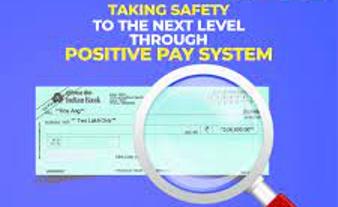

By Linus Garg
First publised on 2022-09-26 09:00:52
Although
the positive pay confirmation system(PPS) , to prevent banking frauds related
to high value cheques, was introduced by the RBI in January, 2021, a lot of
confusion still prevails in the minds of the customers since the RBI had not
made it mandatory. It is only now that it has advised banks to make the PPS
mandatory for cheques above Rs. 500000.
Since PPS
is not mandatory for cheques up to Rs. 500000, it has been left to the
discretion of the banks to introduce the system as per their own threshold.
There are many complaints from customers that different banks are following
different thresholds for PPS. For instance, Bank of Baroda (BoB) (and some
other banks) requires that customers intimate it (there are many channels for
doing so) whenever they issue a cheque of more than Rs 50000 to anyone. On the
other hand, SBI requires this only for cheques above Rs 500000.
While PPS
is a good step by the RBI, the lack of clarity in enforcing it with uniformity
in the banking system is troubling customers. For instance, an SBI customer, knowing
that the requirement for PPS is for cheques above Rs 500000, deposits a cheque
of Rs. 100000 of BoB received from a customer. The cheque is returned unpaid by
BoB with the remark "advice not received". The SBI customer did not feel the
need to ask his payer whether he had informed his bank through PPS as he
thought the limit was Rs. 500000. The BoB customer was perhaps not aware that
the requirement in his bank was for cheques above Rs. 50000.
This can be
solved by the RBI issuing an order making PPS mandatory with a uniform
threshold for all banks and prevents banks from setting their own thresholds.
That would prevent such bouncing of cheques and disputes between traders.











